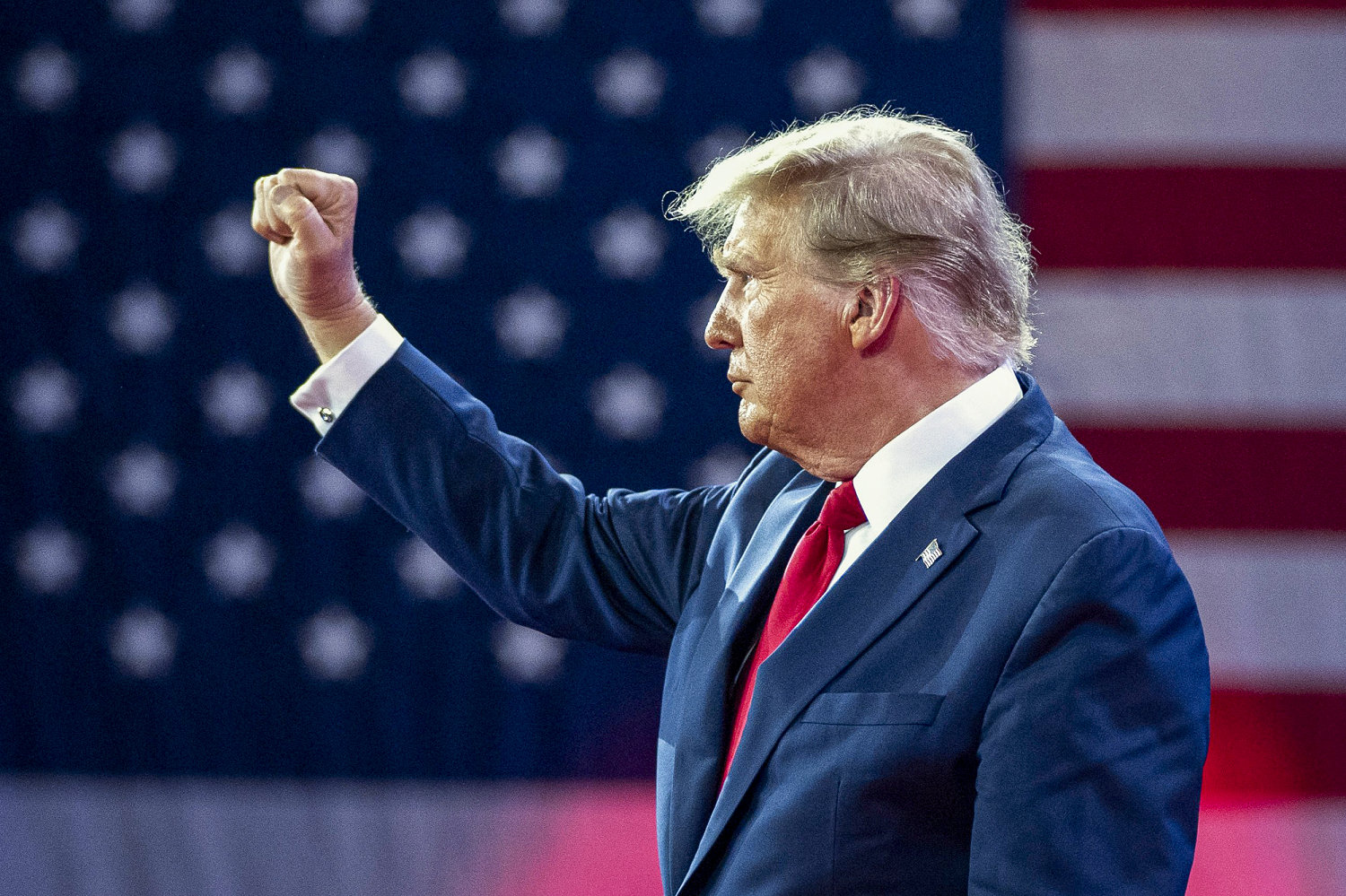

A New York appeals court judge on Wednesday denied a request by former President Donald Trump’s attorneys to delay enforcement of the recent $464 million judgment against him, his sons and his company.
Trump’s lawyers had asked the judge to instead allow the former president to post a $100 million bond instead of the statutorily required full amount.
In a brief ruling after an emergency hearing, Justice Anil C. Singh rejected the request to reduce the bond amount but granted other requests the Trumps were asking for, including allowing them to continue to borrow money. Singh’s order is temporary until a full panel of appeals court judges weighs in on the matter.
In a filing Wednesday with the state Appellate Division, Trump’s attorneys said it would be “impossible” for the billionaire to post the full amount given the restrictions in the ruling handed down by Judge Arthur Engoron in the civil fraud case brought by New York Attorney General Letitia James.
“The exorbitant and punitive amount of the Judgment coupled with an unlawful and unconstitutional blanket prohibition on lending transactions would make it impossible to secure and post a complete bond. Appellants nonetheless plan to secure and post a bond in the amount of $100 million,” the filing said.
Trump attorney Clifford Robert said that without the reduction they’d likely have to post a bond for well over the $464 million judgment amount. “To account for post-judgment interest and appeal cost, a surety will often set the bond amount at 120% of the judgment or more,” he wrote in the filing. That would total well over $500 million.
Without a stay with the lowered bond amount, Trump’s lawyers argue, “properties would likely need to be sold to raise capital under exigent circumstances, and there would be no way to recover any property sold following a successful appeal and no means to recover the resulting financial losses from the Attorney General.”
James’ office opposed the request.
“There is no merit to defendants’ contention that a full bond or deposit is unnecessary because they are willing to post a partial undertaking of less than a quarter of the judgment amount,” Senior Assistant Solicitor General Dennis Fan wrote on behalf of James.
“Defendants all but concede that Mr. Trump has insufficient liquid assets to satisfy the judgment; defendants would need ‘to raise capital’ to do so. These are precisely the circumstances for which a full bond or deposit is necessary,” Fan’s filing said, adding that “there is substantial risk that defendants will attempt to evade enforcement of the judgment (or make enforcement more difficult) following appeal.”
The $464 million judgment was officially entered last week, starting the 30-day clock for Trump to post a bond in order to stay any collection efforts by James’ office. The dollar amount includes the prejudgment interest that accrued on Engoron’s more than $350 million award against Trump and the Trump Organization for having routinely inflated their assets to get bank loans at rates they weren’t entitled to. The interest will continue to grow by over $114,000 a day until it’s paid or Trump wins his appeal.
Singh’s order set an expedited briefing schedule for Trump’s appeal, with final filings due by March 18. That leaves open the possibility that the full court could act before Trump has to file the bond.
In their filing Wednesday, Trump’s attorneys contended the award handed down by Engoron should have been closer to $100 million. “Among the Judgment’s myriad errors, more than $350 million of the nearly $465 million awarded in disgorgement is barred by the statute of limitations,” they contended.
The AG’s office said those arguments have already been rejected by the judge, and are likely to be rejected by the appeals court as well.
Trump’s lawyers filed his notice of appeal in the case last week, saying they wanted the court to determine whether Engoron “committed errors of law and/or fact, and whether he abused his discretion and/or acted in excess of his jurisdiction” when he handed down the judgment they called “staggering” in the filing Wednesday.
Trump is facing a similar issue in New York federal court, where he was hit last month with an $83 million defamation verdict. That judgment was officially entered on Feb. 8, and the 30-day clock for him to post a bond in that case is ticking down as well.
In a court filing Friday, Trump’s attorneys asked the judge who presided over the defamation case to extend the time he has to post a bond until 30 days after his post-trial motions seeking to reduce the size of the verdict are decided, or to allow him “to post a bond in an appropriate fraction of the amount of the judgment,” the filing said.
In a ruling over the weekend, U.S. District Judge Lewis Kaplan said he would not decide the issue until he hears from lawyers for the writer Trump defamed, E. Jean Carroll. “The Court declines to grant any stay, much less an unsecured stay, without first having afforded plaintiff a meaningful opportunity to be heard,” the judge wrote.
Carroll’s lawyers are expected to respond by Thursday, and Trump’s attorneys will then have two days to respond to their arguments.